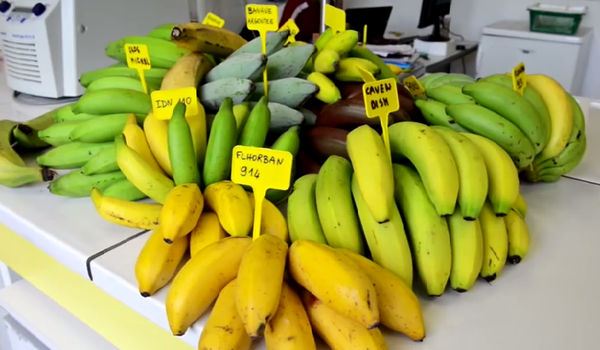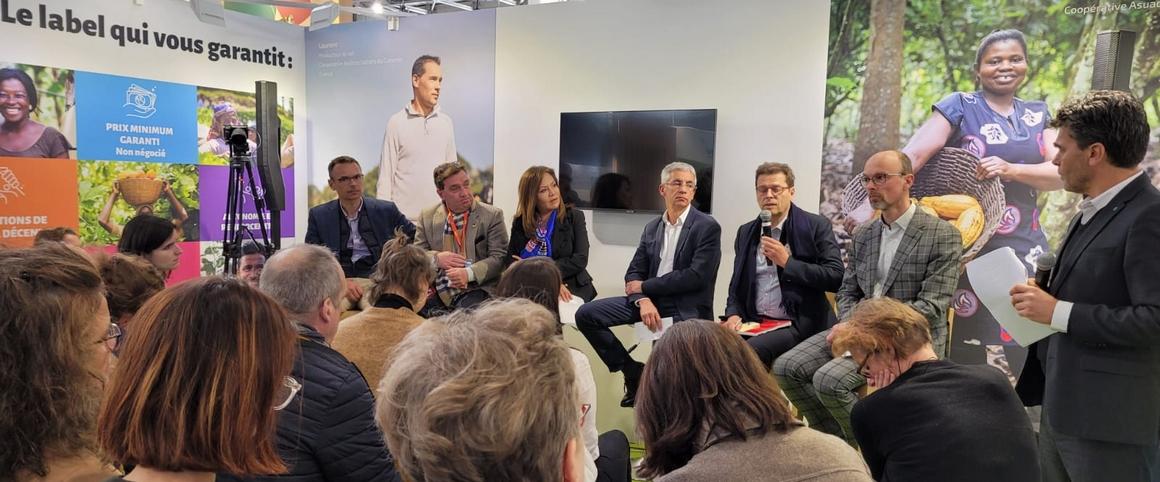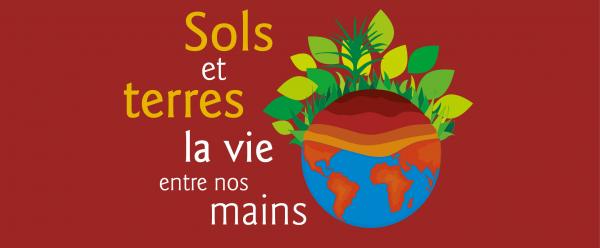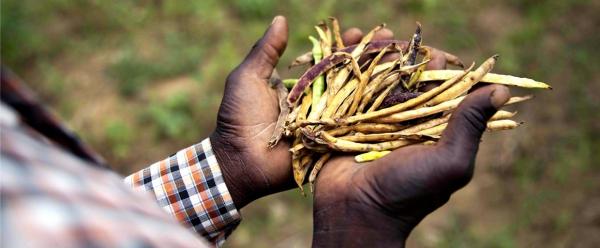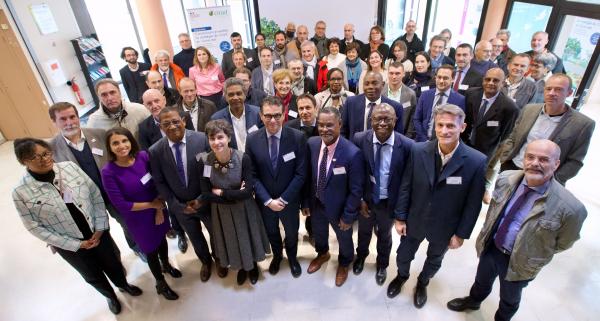Driven by the shared desire to meet the industry’s economic, environmental and social challenges, the main players in the French banana industry decided to team up under a multi-player voluntary initiative for sustainable bananas. The ambition of the IFBD is to deal with all aspects of sustainability, and will address the economic conditions of the implementation of the environmental and social transitions. The members would also like to place this initiative under the aegis of the French government, as is the case for the French initiative for sustainable cocoa (IFCD).
This French initiative for sustainable bananas has set itself three main objectives:
- Distribution of shared value and responsibilities in the industry: ensure fair distribution of value throughout the production and trade chain, to ensure a living wage for growers and labourers by 2030.
- Environmental sustainability of production systems: improve practices, taking into account the diversity of the production zones, guarantee sustainable management of natural resources, increase biodiversity, mitigate the negative impacts on the environment and adapt production systems to climate change, through researching and implementing innovative agro-ecological practices.
- Respecting human rights and the right to work: guarantee worker health and safety, exercise of freedom of association and collective negotiation, gender equality, and combat child labour on plantations.
Work groups will enable the participants to discuss good practices in order to bring about an in-depth transformation of the banana sector to become sustainable, lucrative, environmentally friendly and contributing to local development.
CIRAD, Max Havelaar France and Banana Link, along with the AIB (Banana Inter-Professional Association), will coordinate the work conducted in various work groups involving representatives of the various links of the industry. This work will lead to a collective definition of a “sustainable banana industry” roadmap, along with ambitious objectives for transforming the sector in the short, medium and long term.
French bananas, which are grown in the French West Indies, are the fruits of a long history, fraught with difficulties, that CIRAD has supported over the years. Forty years that have revolutionized banana growing and seen biodiversity return to banana plantations.
The banana market
With approximately 140 million tonnes produced every year across more than 150 countries, the banana (dessert and cooking) contributes to the food security of many countries. The banana is consumed in large quantities locally, but also supplies an often highly dynamic regional market. In the export sector (long-haul), the world market is fed by 24 million tonnes of dessert banana (Cavendish, including re-exports). Latin America (led by Ecuador, Guatemala, Costa Rica and Colombia) provides approximately three quarters of the world export supply, followed by Asia with the Philippines far out in the lead, and then the West and Central Africa zone (primarily Côte d’Ivoire and Ghana) plus the Caribbean (especially the Dominican Republic). The European Union is developing production in some of its ultraperipheral regions, i.e. the French West Indies, Canaries and Madeira.
France plays a dual role in the world banana trade, as a producer country in its Overseas departments, the industry being one of the biggest job providers in the French West Indies, and a consumer country, bananas being the 2nd most consumed fruit in France behind apples. The French market is around 700 000 tonnes in size. Banana consumption in France has been dynamic over recent years (from 9 kg per capita per year in 2017 to 11.2 kg in 2021). The country is the 3rd biggest importer in the European Union, after Germany and Italy. In terms of distribution, French banana production represented 24% of the French market share, with the remaining three quarters shared between bananas from Africa, the Caribbean and the Latin American “dollar” zone.
